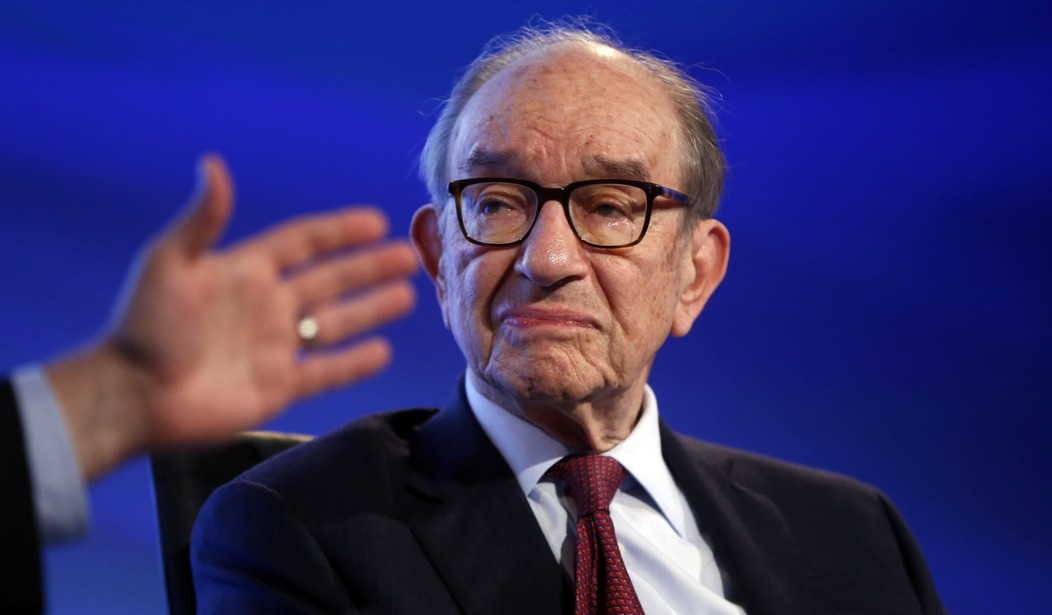WASHINGTON — Former Fed Chairman Alan Greenspan downplayed President Trump’s recent attacks on the Federal Reserve and described surges of populism seen in the past and today as a “scream for help.”
Trump called the Fed “out of control” this month and criticized the central bank for raising interest rates while inflation is low.
Former White House economic adviser Gary Cohn agreed with the Fed’s decision to raise rates and told CNBC that Trump shouldn’t criticize the Fed’s actions since it’s an independent agency.
Greenspan was asked if Trump’s criticism is a threat to the independence of the Fed in the future.
“I think not very, it’s not very – the reason is that the statute that created the Federal Reserve system does specify the fact that governors of the system can be impeached for cause. Now ‘for cause’ is a very restrictive type of meaning and has a very restrictive meaning – meaning there must be real reasons why you try to get rid of either the chairman of the Federal Reserve. So the chairman is also a member of the board,” Greenspan said during a discussion on Thursday at the Council on Foreign Relations.
“There is no evidence that any president has been able to alter Federal Reserve policy, even though implicitly a president can get members of the board impeached,” he added. “But it has always been extremely difficult to raise it and it has never happened.”
To support his point, Greenspan referenced his time as chairman of the Fed.
“When I was there, for example, I had to listen to a number of presidents screaming in my ear to lower interest rates. They never talk about raising them. I got tons of mail which say, you know, basically, well, I won’t even give you that – that story is not discussable but there is a very serious problem here, which, in the end, will not matter,” he said.
“In other words, I think the current chairman of the Federal Reserve is a first-rate economist, and I’ve known him for years. And he is going to hear a lot of noise in one ear and it’s going to just go out the other, and that’s the only way that central bankers can handle presidents of the United States. And this goes back a very long way in history,” he added.
Greenspan shared his view of populism, which he included in his new book, Capitalism in America: A History, written with Economist political editor and historian Adrian Wooldridge.
“Populism historically is created in economies which are sagging. In other words, the classic case, of course, is Latin American populism, but the best way to construct it in today’s context is that if the gross domestic product is rising at a 4 or 5 percent annual rate, there’s great contentment within the society and there is no really significant move away from the current structure,” Greenspan said.
“When you get, for whatever reason, a decline in the rate of growth, say down to 2 percent or the like, and Britain and Brexit is the obvious example where all of sudden everyone is looking for a way to get out of the control of the European Union – which is a whole ’nother story, but I think that the major issue here is the fact that when you have populism, you get a cry of help, help us somebody, and somebody with a white horse comes barreling in and says, ‘I can do it.’”
Greenspan described populism as “not a conceptual framework such as capitalism, socialism or communism” but rather “a scream of help” for someone to “come rescue us.”
“There are innumerable people who are willing to do that on occasion, most recently being the most obvious period. So I think that there is structural changes where you can go from what the data on productivity over the generations is showing and the political evolution that occurs as a consequence,” he said.
“One of the most important is in the 1870s, when the price level was by statute driven down from the inflated levels of the Civil War back to the pre-Civil War period,” Greenspan added. “And they succeeded, but they created a huge negative response to the consequences of declining prices and it echoes through to this day.”









Join the conversation as a VIP Member